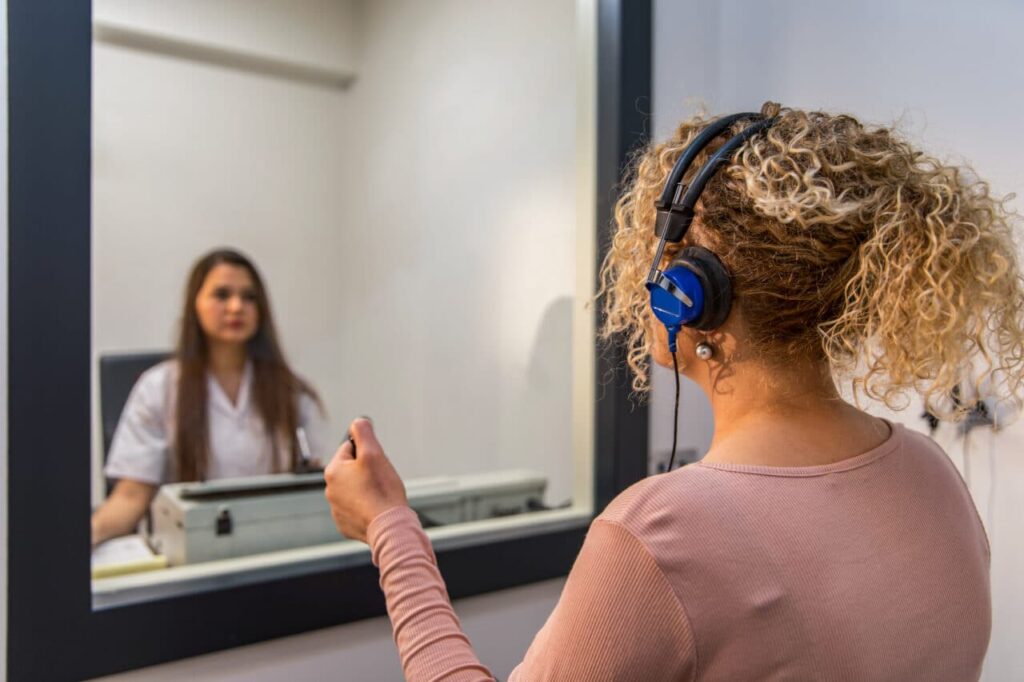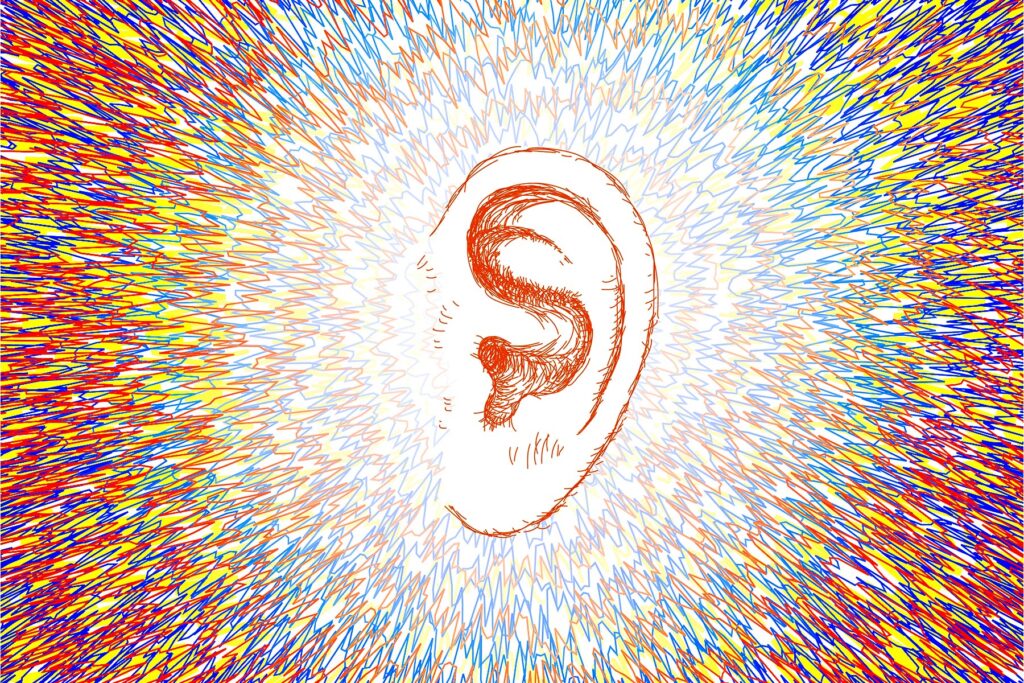Ever find yourself hearing a persistent ringing, buzzing, or hissing sound in your ears that just won’t go away? Welcome to the world of tinnitus. It’s actually more common than you think, affecting around 10-15% of adults in the U.S. While it may seem like a minor nuisance at first, tinnitus can seriously mess with your day-to-day life, making it hard to focus, sleep, or just enjoy the silence. But don’t worry, we’ve got you covered. In this article, we’re diving into what tinnitus is all about, how it impacts your life, and some easy-to-follow tips to help you manage it better.
What Exactly is Tinnitus?
Tinnitus isn’t a disease—it’s a symptom, a signal that something’s up with your auditory system. You might experience it because of age-related hearing loss, exposure to loud noises, ear infections, or even an injury. And while it may come and go for some people, for others, it sticks around like an unwanted house guest. It’s not just the sound that’s annoying—it can also lead to stress, anxiety, sleep problems, and even mood swings. And here’s the kicker: your mindset can actually make things worse. The more stressed or anxious you are, the louder that ringing seems to get.

How Tinnitus Affects Your Life
For some, tinnitus can feel like a constant companion, distracting them at work, at home, or even in social settings. The impact can be huge:
- Sleep Struggles: The quiet of night can make the ringing in your ears feel louder, making it tough to fall asleep or stay asleep.
- Mental Health: The unrelenting noise can lead to anxiety, frustration, and even depression as you struggle to tune it out.
- Work & Social Life: If you can’t focus during meetings or conversations, you might find yourself withdrawing from social interactions and struggling to perform at your best.
Research shows that tinnitus isn’t just an ear issue—it affects your whole well-being. That’s why taking action early is so important.
How to Take Control of Tinnitus
1.Get a Professional Check-Up
Before jumping into any DIY treatments, it’s a good idea to see an audiologist or an ENT specialist. A thorough hearing exam can help identify any underlying issues that could be making your tinnitus worse (like hearing loss or infections). Getting the right diagnosis means better treatments, whether it’s hearing aids, sound therapy, or something else.

2.Sound Therapy: Your New Best Friend
One of the most common ways to manage tinnitus is to mask the noise with other sounds. It might sound strange, but it works!
- White Noise & Nature Sounds: Machines or apps that play white noise (think a fan or static) or calming nature sounds (like rain or ocean waves) can help distract your brain from focusing on the ringing.
- Personalized Audio: Some people benefit from customized sound therapy, like music designed to target specific frequencies related to their tinnitus.
- Tech That Helps: If you use hearing aids, some of the newer models come with built-in tinnitus masking features, giving you subtle relief throughout the day.
3.Mind Over Matter: Psychological Approaches
Your emotional state can make tinnitus feel louder. That’s where psychological therapies come in. Two popular ones include:
- Cognitive Behavioral Therapy (CBT): This therapy helps you change negative thoughts about tinnitus, turning down the emotional volume on those annoying sounds. You can even find online modules to work through at your own pace.
- Acceptance & Commitment Therapy (ACT): ACT is all about accepting tinnitus as part of your life, rather than constantly fighting it. It encourages mindfulness techniques and positive coping strategies to make tinnitus less overwhelming.
4.Lifestyle Tweaks for Better Management
- Relaxation is Key: Make sure to take regular breaks during stressful tasks. A quick walk, deep breaths, or a little meditation can help calm your mind and body, reducing tinnitus intensity.
- Create a Calm Environment: Set up quiet spaces in your home or workplace. Use soothing sounds in the background to reduce the contrast between the silence and the ringing.
- Move Your Body: Regular exercise isn’t just good for your body—it can also help with tinnitus by improving circulation and reducing stress. Even something as simple as a daily walk can make a big difference.
Prevention: Protecting Your Ears
Want to stop tinnitus before it starts? Here are a few things you can do:
- Avoid Loud Noises: If you’re exposed to loud sounds regularly, like at concerts or noisy work environments, wear earplugs or earmuffs to protect your ears.
- Keep the Volume Down: If you listen to music through headphones, keep the volume at 60% or lower, and take breaks every hour to give your ears a rest.
- Live a Healthy Lifestyle: A balanced diet, regular exercise, and good sleep hygiene can help prevent or reduce tinnitus. And don’t forget about staying hydrated!
When to See a Doctor
Tinnitus is common, but if it starts to affect your life more than you can handle, it’s time to reach out for help. If you notice any of the following, see a healthcare provider:
- The tinnitus is affecting your ability to sleep or concentrate
- You experience sudden hearing loss or dizziness
- You’re feeling anxious, depressed, or overwhelmed
Remember, you don’t have to suffer in silence. There are plenty of ways to manage tinnitus, from professional treatments to simple lifestyle changes. The sooner you take action, the better your chances of reducing its impact on your life.

Disclaimer:
The content provided in this article is for informational and general wellness purposes only. It is not intended to be a substitute for professional medical advice, diagnosis, or treatment. Always consult with a qualified healthcare provider before making any changes to your health routine or lifestyle, especially if you have existing health conditions. We make no guarantees regarding the effectiveness or safety of any tips or suggestions mentioned. Use your discretion and consult professionals when necessary.
Key Citations:
https://www.mayoclinichealthsystem.org/hometown-health/speaking-of-health/tinnitus-and-quality-of-life
https://pmc.ncbi.nlm.nih.gov/articles/PMC9549357/
https://www.health.harvard.edu/diseases-and-conditions/tips-to-manage-tinnitus
https://www.theguardian.com/science/2024/jan/09/new-app-can-reduce-debilitating-impact-of-tinnitus-say-researchers
https://www.betterhealth.vic.gov.au/health/conditionsandtreatments/tinnitus



